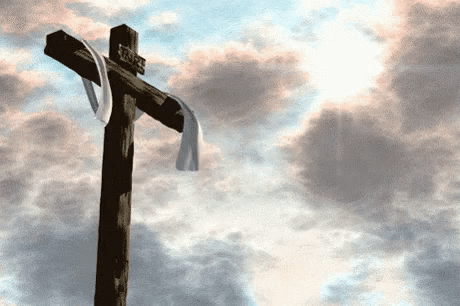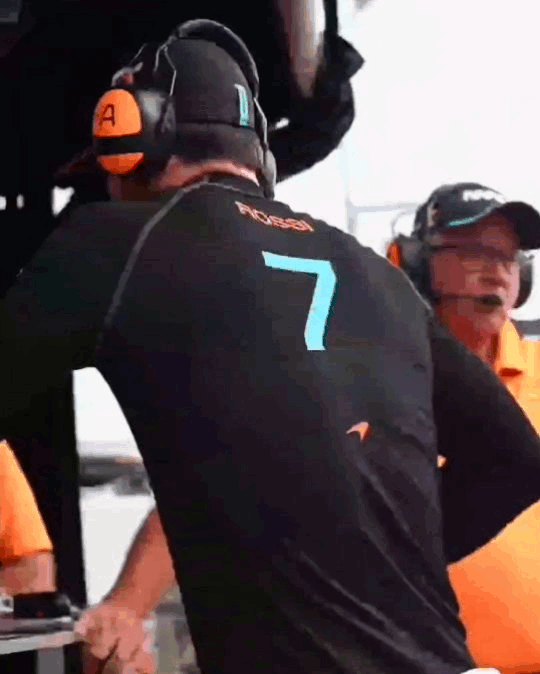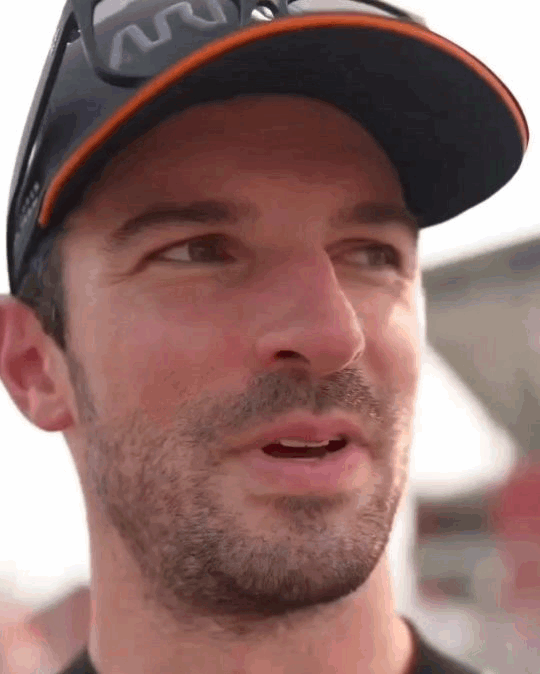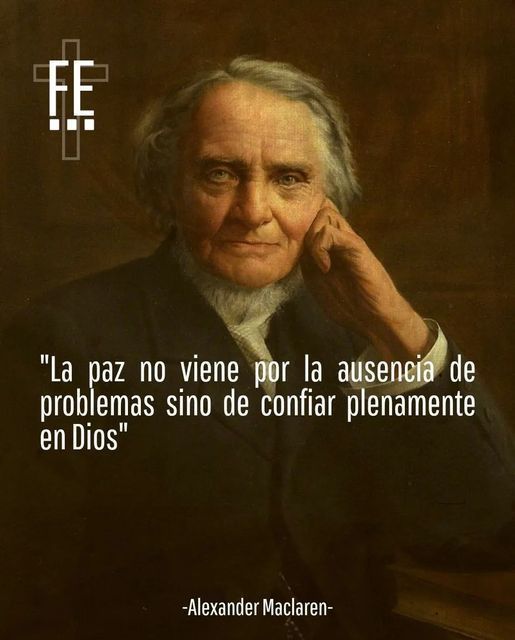#alexander maclaren
Explore tagged Tumblr posts
Text
All true following of Christ begins with faith, or we might almost say that following is faith, for we find our Lord substituting the former expression for the latter... ‘I am come a Light into the world, that whosoever believeth on Me should not walk in darkness.’ The two ideas are not equivalent, but faith is the condition of following; and following is the outcome and test, because it is the operation, of faith. None but they who trust Him will follow Him. He who does not follow, does not trust. To follow Christ, means to long and strive after His companionship... It means the submission of the will, the effort of the whole nature, the daily conflict to reproduce His example, the resolute adoption of His command as my law, His providence as my will, His fellowship as my joy. And the root and beginning of all such following is in coming to Him, conscious of mine own darkness, and trustful in His great light. We must rely on a Guide before we accept His directions; and it is absurd to pretend that we trust Him, if we do not go as He bids us. So ‘Follow thou Me’ is, in a very real sense, the sum of all Christian duty.
Alexander MacLaren
#follow jesus#jesus christ#reflect on this#christian living#Alexander MacLaren#trust in jesus#humility#Faith#Trust
23 notes
·
View notes
Photo

"Did any of you, parents, ever hear your child wake from sleep with some panic fear and shriek the mother’s name through the darkness? Was not that a more powerful appeal than all words? And, depend upon it, that the soul which cries aloud on God, “the God and Father of our Lord Jesus Christ,” though it have “no language but a cry,” will never call in vain." - Alexander MacLaren
#prayer#sweetness#effectiveness#God the Father#Lord#Jesus Christ#crying out#Alexander MacLaren#Christian Quotes
24 notes
·
View notes
Text
Group burdens and Individual loads…
Galatians 6:1-2, 5, “Brothers and sisters, if someone is caught in a sin, you who live by the Spirit should restore that person gently… Carry each other’s burdens, and in this way you will fulfill the law of Christ… For every person will have to bear [with patience] his own load [of faults and shortcomings for which he alone is responsible].”

The word ‘overtaken’ suggests that some sin, like a tiger in a jungle, springs upon a man and overpowers him by the suddenness of the assault. The word so rendered may perhaps be represented by some such phrase as ‘discovered’; or, if I may use a ‘colloquialism,’ if a man be caught ‘red-handed.’ That is the idea. And Paul does not use the weak word ‘fault,’ but a very much stronger one, which means stark staring sin. He is supposing a bad case of inconsistency, and is not palliating it at all.
Here is a brother who has had an unblemished reputation; and all at once the curtain is thrown aside behind which he is working some wicked thing; and there the culprit stands, with the bull’s-eye light flashed upon him, ashamed and trembling. Paul says, ‘If you are a spiritual man’—there is irony there of the graver sort—’show your spirituality by going and lifting him up, and trying to help him.’ When he says, ‘Restore such a one,’ he uses an expression which is employed in other connections in the New Testament, such as for mending the broken meshes of a net, for repairing any kind of damage, for setting the fractured bones of a limb. And that is what the ‘spiritual’ man has to do. He is to show the validity of his claim to live on high by stooping down to the man bemired and broken-legged in the dirt.
We have come across people who chiefly show their own purity by their harsh condemnation of others’ sins. One has heard of women so very virtuous that they would rather hound a fallen sister to death than try to restore her; and there are saints so extremely saintly that they will not touch the leper to heal him, for fear of their own hands being ceremonially defiled. Paul says, ‘Bear ye one another’s burdens’; and especially take a lift of each other’s sin.
But there are burdens that cannot be borne by any but the man himself.
There is the awful burden of personal existence. It is a solemn thing to be able to say ‘I.’ And that carries with it this, that after all sympathy, after all nestling closeness of affection, after the tenderest exhibition of identity of feeling, and of swift godlike readiness to help, each of us lives alone. Like the inhabitants of the islands of the Greek Archipelago, we are able to wave signals to the next island, and sometimes to send a boat with provisions and succor, but we are parted, ‘with echoing straits between us thrown.’ Every man, after all, lives alone, and society is like the material things round about us, which are all compressible, because the atoms that compose them are not in actual contact, but separated by slenderer or more substantial films of isolating air. Thus there is even in the sorrows which we can share with our brethren, and in all the burdens which we can help to bear, an element which cannot be imparted. ‘The heart knoweth its own bitterness’, and neither ‘stranger’ nor other ‘intermeddleth’ with the deepest fountains of ‘its joy.’
Then again, there is the burden of responsibility which can be shared by none. A dozen soldiers may be turned out to make a firing party to shoot the mutineer, and no man knows who fired the shot, but one man did fire it. And however there may have been companions, it was his rifle that carried the bullet, and his finger that pulled the trigger. We say, ‘The woman that Thou gavest me tempted me, and I did eat.’ Or we say, ‘My natural appetites, for which I am not responsible, but Thou who madest me art, drew me aside, and I fell’, or we may say, ‘It was not I; it was the other boy.’ And then there rises up in our hearts a veiled form, and from its majestic lips comes ‘Thou art the man’; and our whole being echoes assent—Mea culpa; mea maxima culpa—’My fault, my exceeding great fault.’ No man can bear that burden.
And then, closely connected with responsibility there is another—the burden of the inevitable consequences of transgression, not only away yonder in the future, when all human bonds of companionship shall be broken, and each man shall ‘give account of himself to God,’ but here and now; as in the immediate context the Apostle tells us, ‘Whatsoever a man soweth, that shall he also reap.’ The effects of our evil deeds come back to roost; and they never make a mistake as to where they should alight. If I have sown, I, and no one else, will gather. No sympathy will prevent to-morrow’s headache after to-night’s debauch, and nothing that anybody can do will turn the sleuth-hounds off the scent. Though they may be slow-footed, they have sure noses and deep-mouthed fangs. ‘If thou be wise thou shalt be wise for thyself, and if thou scornest thou alone shalt bear it.’ So there are burdens which can, and burdens which cannot, be borne.
Alexander MacLaren
0 notes
Text
"Quote Of The Day" October 15, 2023
“True peace comes not from the absence of trouble, but from the presence of God.” — Alexander MacLaren
View On WordPress
0 notes
Photo

The risen life of Jesus is the nourishment and strengthening and blessing and life of a Christian. Our daily experience ought to be that there comes, wavelet by wavelet, that silent, gentle, and yet omnipotent influx into our empty hearts, this very life of Christ Himself.
Alexander MacLaren
1 note
·
View note
Text

𝐦 𝐚 𝐬 𝐭 𝐞 𝐫 𝐥 𝐢 𝐬 𝐭 by ⋆ ˚𝐚𝐫𝐢𝜗𝜚
playing: 𝐣𝐮𝐧𝐨 by sabrina carpenter 𝜗𝜚˚。˚ ⋆
⋆ ˚。⋆ 𝜗𝜚 ˚。˚ ⋆ ⋆ ˚。⋆ 𝜗𝜚 ˚。˚ ⋆ ⋆ ˚。⋆ 𝜗𝜚 ˚。˚ ⋆ ⋆ ˚。⋆ 𝜗𝜚 ˚。˚ ⋆ ⋆ ⋆ ˚。⋆ 𝜗𝜚 ˚。˚ ⋆ ⋆
𝐧𝐢𝐜𝐡𝐨𝐥𝐚𝐬 𝐚. 𝐜𝐡𝐚𝐯𝐞𝐳 ♡
𝐝 𝐚 𝐲 𝐥 𝐢 𝐠 𝐡 𝐭 ⋆ ˚。⋆ 𝜗𝜚 ˚。˚ ⋆
𝐫𝐚𝐟𝐞 𝐜𝐚𝐦𝐞𝐫𝐨𝐧 ♡
𝐧 𝐨 𝐛 𝐨 𝐝 𝐲 𝐠 𝐞 𝐭 𝐬 𝐦 𝐞 ⋆ ˚。⋆ 𝜗𝜚 ˚。˚ ⋆ the series
𝐳𝐚𝐜𝐡 𝐦𝐚𝐜𝐥𝐚𝐫𝐞𝐧 ♡
𝐬 𝐥 𝐨 𝐰 𝐦 𝐨 𝐭 𝐢 𝐨 𝐧 ⋆ ˚。⋆ 𝜗𝜚 ˚。˚ ⋆
⋆ ˚。⋆ 𝜗𝜚 ˚。˚ ⋆ ⋆ ˚。⋆ 𝜗𝜚 ˚。˚ ⋆ ⋆ ˚。⋆ 𝜗𝜚 ˚。˚ ⋆ ⋆ ˚。⋆ 𝜗𝜚 ˚。˚ ⋆ ⋆ ⋆ ˚。⋆ 𝜗𝜚 ˚。˚ ⋆ ⋆
notes: welcome to my master list! here are all of the silly things i’ve written, some being series, some being stand alones or one shots. in all of these cases, they are for mature audiences. with that being said if you are a minor please do not interact. all of my posts (unless stated otherwise) contain explicit content. you are responsible for the content you consume so you’ve been warned.
this is technically a multi-fandom blog, however i do mainly write for rafe cameron/characters that drew starkey has played.
thank you all so much for the love and support! ♡
#⋆ ˚𝐚𝐫𝐢𝜗𝜚speaks#⋆ ˚𝐚𝐫𝐢𝜗𝜚writes#fanfiction#fanfic#writing#writers on tumblr#writeblr#female writers#writer#fanfiction writer#blogging#blog directory#blog intro#blog info#masterlist#444#drew starkey#nicholas alexander chavez#rafe cameron#zach maclaren
64 notes
·
View notes
Text




#alexander rossi#indycar#im obsessed#love him#sad day for him#looking good while suffering#the Maclaren vibes
40 notes
·
View notes
Text
A paz não vem da ausência de problemas, mas da presença de Deus.
Alexander MacLaren
113 notes
·
View notes
Text
obviously there's a lot to be said for the way that jamie holds onto his culture and beliefs and specifically his jacobitism throughout his travels. he defines himself as scottish and values scottishness in a way which might be anachronistically nationalistic for someone from his time but which isn't entirely out of line with the sort of pseudo-nationalism that crops up in gaelic jacobitism. in the ice warriors, he immediately identifies with storr's description of himself as a 'loyalist', whatever he took that to mean. in the dominators, he likens himself and cully fighting the quarks to his family fighting redcoats, and in the war games him working together with a redcoat is a massive point of character development. he never stops being incredibly informed by his life experience, by the conflict he's seen and by the ways it has affected his people
but at the same time, he's very much cut adrift from the movement he was apart of. he's two years younger than prince charles, born into a family with close social ties to a landowner who's committed enough to the jacobite cause that both he and his son are fighting for them - colin maclaren is hedging no bets and not even bothering to play both sides. jamie must have lived and breathed this whole belief system from the day he was born. he's never known a world without the expectation that there'll be a war - as soon as the prince is old enough, as soon as they're ready - or without the knowledge that he'll risk his life for it. at the point of the highlanders, he's spent twenty-two years immersed in one side of an incredibly polarised belief system that's dictated his views on religion, transfer of power, social hierarchies, the role his country and his culture should play in the world. it's all-pervasive and inescapable.
and yet basically the first thing we hear from him is that prince charles was first to abandon them, when the tides turned. it's not the truth of the matter, whether or not he knows it, and he's far from the only one to think this, at the time. but he believes it enough that he's willing to fight with alexander - his social superior, the son of his landlord and employer - rather than back down or stay quiet. he never fully, openly turns away from the cause, and he's certainly still loyal to his laird and to the men he's fought with - but you get the sense that something's broken in his belief system. the supposedly predestined jacobite victory hasn't come about, and that's shaken him. when he gets out of that environment entirely and is travelling with the doctor, he'll reference his people, his culture, the conflict he was a part of - but he never mentions who he was fighting for. the moment when he works with the redcoat is a moment of character development not because he's working with someone who fought for a different monarch, but because he's working with someone who has done harm to his people. the direct, personal implications of that conflict are there, but all the broader beliefs and context aren't.
which is interesting to line up against the doctor, at this point. because they're in the same place here, in a way. fresh off his first regeneration, the doctor has the time machine, and the knowledge, and the gallifreyan belief that he knows best. he's carried that with him. but he's growing closer to his human companions than maybe ever before, letting them trust him and know him and become like family. he listens to and respects jamie's beliefs in the moonbase, even knowing that the phantom piper isn't real, because the fact that it's important to jamie is more valuable than him being objectively right. he takes an open, blatant moral stance against evil and injustice, and does it again, and again, until ultimately it costs him his life and his companions. the doctor at this point is more adrift than he ever has been - one step further removed from the beliefs and systems of gallifrey, but still crystallising his own beliefs and the values that will carry him through the rest of his regenerations.
so he picks up jamie, more by accident than anything, and finds in him - a kindred spirit? someone who's certain in all the ways he's not, and faltering in all the places he isn't? someone who needs a cause to fight for, certainly, and who can give him the moral and emotional direction he's seeking. someone who gets what it's like to look at the world you've been raised in and see it shatter, until you can't believe in it the way you once did. someone who's been through all that, and who can answer the question of /what's next/ beside him.
#second doctor#two/jamie#idk is this anything........#wrote this instead of doing my fic writing for the night lmao#i just have a lot of feelings about the ways that two and jamie are actually the same!!!!#looking for the same meanings & finding them together. growing into the same values.#growing into the same beliefs and /roles/#& i also think this means that 6b two before he gets jamie back is. entirely adrift. a little unhinged.#much more like his characterisation in power of the daleks/the highlanders#i also have a lot of feelings about jamie's jacobite beliefs but i tried to minimise that here bc it's another post entirely#unsuccessfully minimise but you know
13 notes
·
View notes
Text
Luke 5:17-26
Below is a portion of a commentary by Alexander MacLaren on the abovementioned verses within Luke. It is the story of the man with palsy that was lowered down through the roof to be laid in front of Jesus for healing. In it, Jesus first forgives the man's sins, then heals the affliction. I will only give the first section of his two-point commentary. This was published in 1900.
"The first lesson from this incident is that our deepest need is forgiveness. No doubt, something in the paralytic’s case determined Christ’s method with him. Perhaps his sickness had been brought on by dissipation, and possibly conscience was lashing him with a whip of scorpions, so that, while his friends sought for his healing, he himself was more anxious for pardon. It is very unlikely that Jesus would have offered forgiveness unless He had known that it was yearned for. But whether that is so or not, we may fairly generalize the order of givings in this miracle, and draw from it the lesson that what Jesus then gave first is His chief gift. In most of His other miracles He gave bodily healing first. First or second, it is always Christ’s chief gift in the beginning of discipleship. His miracles of bodily healing are parables of that higher miracle. This incident brings out what is always the order of relative importance, whether it is that of chronological sequence or not.
And we all need to lay that truth to heart for ourselves. No tinkering with superficial discomforts, or culture of intellect and taste, or success in worldly pursuits, will avail to stanch the deep wound through which our life-blood is ebbing out. We need something that goes deeper than all these styptics. Only a power which can deal with our sense of sin, and soothe that into blessed assurance of pardon, is strong enough to grapple with our true root of misery. It is useless to give a man dying of cancer medicine for pimples. That is what all attempts to make man happy and restful while sin remains unforgiven, are doing.
Social reformers need this lesson. Many voices proclaim many gospels to-day. Culture, economical or social reconstruction, is trumpeted as the panacea. But it matters comparatively little how society is organised. If its individual members retain their former natures, the former evils will come back, whatever its organisation. The only thorough cure for social evils is individual regeneration. Christ deals with men singly, and remoulds society by renewing the individual. The most elaborate machinery may be used for filtering the black waters. What will be the good of that if the fountain of blackness is not sealed up, or rather purified, at its hidden source? Make the tree good, and its fruit will be good. To make the tree good, you must begin with dealing with sin."
He who has ears to hear let him hear.
11 notes
·
View notes
Text
...Christ, in His sweetness and His gentle sustaining help, comes near to us all across the sea of sorrow and trouble. A more tender, a more gracious sense of His nearness to us is ever granted to us in the time of our darkness and our grief than is possible to us in the sunny hours of joy. It is always the stormy sea that Christ comes across, to draw near to us; and they who have never experienced the tempest have yet to learn the inmost sweetness of His presence. When it is night, and it is dark, at the hour which is the keystone of night’s black arch, Christ comes to us, striding across the stormy waters. Sorrow brings Him near to us. Do you see that sorrow does not drive you away from Him!
Alexander MacLaren; Commentary on John 6:16-21
#Alexander MacLaren#John 6:19#John 6#i can attest to this#this means so much to me#dark night of the soul#God is with us even now#jesus christ#Sorrow#Divine sorrow#i love this so much#do not despair#do not be afraid#Biblical commentary
23 notes
·
View notes
Quote
God is His own motive. His love is not drawn out by our loveableness, but wells up, like an artesian spring, from the depths of His nature.
Alexander MacLaren
33 notes
·
View notes
Text
"Ministers of the Gospel especially should banish all thoughts of their own cleverness, intellectual ability, culture, sufficiency for their work, and learn that only when they are emptied can they be filled, and only when they know themselves to be nothing are they ready for God to work through them."
Alexander MacLaren
0 notes
Text

"Peace does not come from the absence of problems but from fully trusting God."
Alexander Maclaren
2 notes
·
View notes
Text

“As the flowers follow the sun, and silently hold up their petals to be tinted and enlarged by its shining, so must we, if we would know the joy of God, hold our souls, wills, hearts, and minds, still before Him, whose voice commands, whose love warns, whose truth makes fair our whole being.
God speaks for the most part in such silence only. If the soul be full of tumult and jangling voices, His voice is little likely to be heard.”
~ Alexander Maclaren
4 notes
·
View notes
Text
"Here is the manliness of manhood, that a man has a good reason for what he does, and has a will in doing it."
-Alexander MacLaren



#red dead redemption 2#red dead redemption community#gaming#red dead redemption two#rdr2 fandom#rdonline#rdo screenshots#rdo photography#rdo2#rdo oc#rdo#rdo character#cowboy#sexy
3 notes
·
View notes